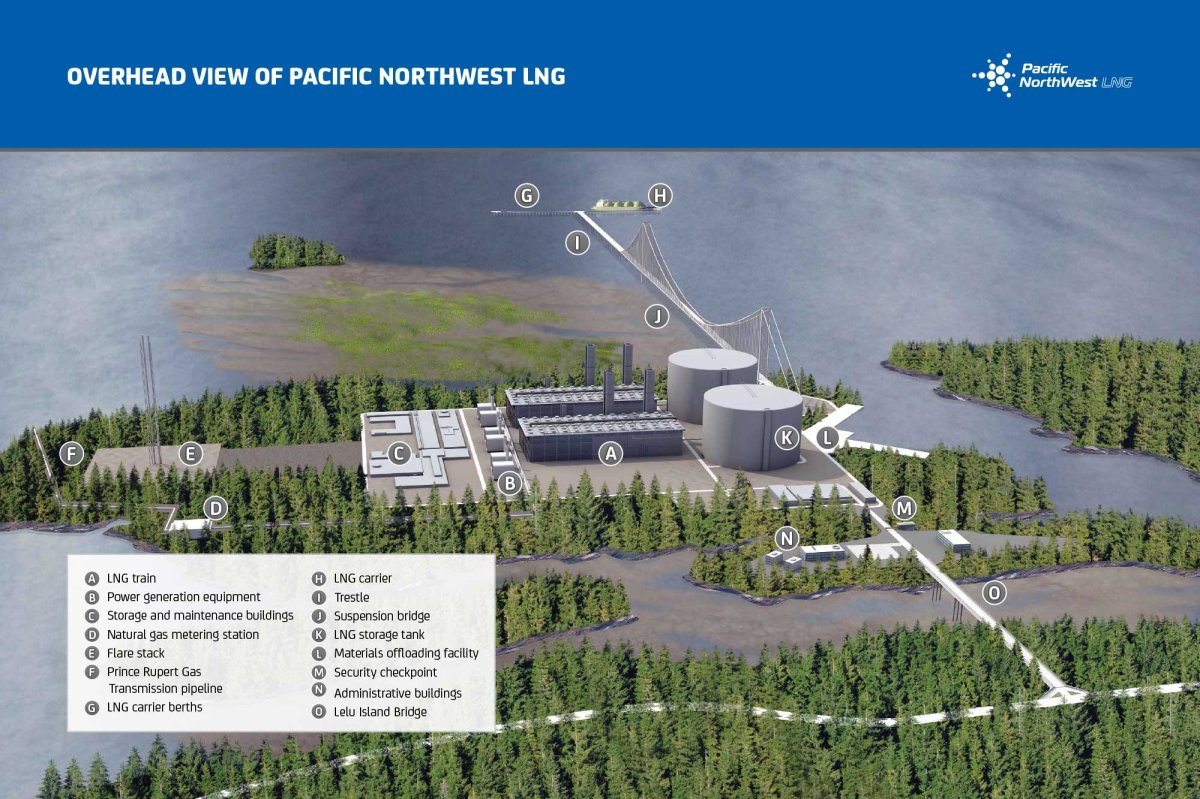The Lax Kw’alaams band is considering a proposal that would give them more than a billion dollars and 2,200 hectares of land in exchange for consenting to the building of a LNG plant and adjoining pipeline in their traditional territory.

Members of the Prince Rupert-based First Nations band will vote in May on the proposal, which comes from the Prince Northwest LNG Facility, TransCanada Corp.’s Prince Rupert Gas Transmission pipeline project, and the B.C. government.
“As a Council we have decided to seek guidance from our membership on whether you support the development of these LNG projects, and the benefits packages offered to Lax Kw’alaams by the proponents and the Province of BC for these projects,” wrote the Mayor and Council of the Lax Kw’alaams in an open letter to the community.
The project would see a 900-kilometre pipeline built from a point near Hudson’s Hope to a proposed LNG facility on Lelu Island, 10 kilometres south of Prince Rupert.
Petronas, the leading company behind the proposed LNG plant, had planned to begin construction last year before delaying the project.
The package would give the Lax Kw’alaams annual payments, beginning at $12.9 million in year one of production and rising to $50.5 million in year 40, totaling $1.014 billion. It would also give them $20.2 million on approval of the deal and signing of preliminary agreements, and $7.6 million in other one-time payments as the project progresses.
In addition, the proposed deal provides 2,200 hectares of land in the Prince Rupert Harbour area, nine million dollars in scholarships, $18.5 million in a training program, and guaranteed employment for every qualified Tsimshian person who applies for a job in the project.
A number of First Nations groups have already signed deals to provide consent for the pipeline passing through their territory.
- ‘It’s nice to be the villain’: Vancouver Canucks gear up for Game 3 in Nashville
- ‘Why aren’t we doing more?’ White Rock on edge with killer on the loose
- Joffre Lakes to close for 3 periods this year under agreement with First Nations
- B.C. carjacking victim says she doesn’t trust the ‘catch-and-release’ system




Comments